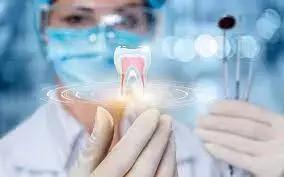- Home
- Medical news & Guidelines
- Anesthesiology
- Cardiology and CTVS
- Critical Care
- Dentistry
- Dermatology
- Diabetes and Endocrinology
- ENT
- Gastroenterology
- Medicine
- Nephrology
- Neurology
- Obstretics-Gynaecology
- Oncology
- Ophthalmology
- Orthopaedics
- Pediatrics-Neonatology
- Psychiatry
- Pulmonology
- Radiology
- Surgery
- Urology
- Laboratory Medicine
- Diet
- Nursing
- Paramedical
- Physiotherapy
- Health news
- Fact Check
- Bone Health Fact Check
- Brain Health Fact Check
- Cancer Related Fact Check
- Child Care Fact Check
- Dental and oral health fact check
- Diabetes and metabolic health fact check
- Diet and Nutrition Fact Check
- Eye and ENT Care Fact Check
- Fitness fact check
- Gut health fact check
- Heart health fact check
- Kidney health fact check
- Medical education fact check
- Men's health fact check
- Respiratory fact check
- Skin and hair care fact check
- Vaccine and Immunization fact check
- Women's health fact check
- AYUSH
- State News
- Andaman and Nicobar Islands
- Andhra Pradesh
- Arunachal Pradesh
- Assam
- Bihar
- Chandigarh
- Chattisgarh
- Dadra and Nagar Haveli
- Daman and Diu
- Delhi
- Goa
- Gujarat
- Haryana
- Himachal Pradesh
- Jammu & Kashmir
- Jharkhand
- Karnataka
- Kerala
- Ladakh
- Lakshadweep
- Madhya Pradesh
- Maharashtra
- Manipur
- Meghalaya
- Mizoram
- Nagaland
- Odisha
- Puducherry
- Punjab
- Rajasthan
- Sikkim
- Tamil Nadu
- Telangana
- Tripura
- Uttar Pradesh
- Uttrakhand
- West Bengal
- Medical Education
- Industry
Percentage of children undergoing pulpotomy and pulpectomy therapy declines, less invasive pulpal therapy envisaged

The percentage of children undergoing pulpotomy and pulpectomy therapy has shown a downward trend over the years, according to a new study based on insurance data.These changes in pulpal therapy practice might indicate a teaching change in pulpal therapy guidelines, suggesting that less invasive pulpal therapy can be used rather than pulpotomies or pulpectomies.
The study has been published in the Journal of the American Dental Association.
Pulpectomy involves removal of all the pulp from the crown and roots of a tooth. It is usually performed in children to save a severely infected primary tooth. In permanent teeth, pulpectomy is the first part of the root canal procedure.
The purpose of this study was to identify differences in usage trends for 2 specific pulpal therapy treatments in pediatric patients during an 11-year period from January 1, 2010, through December 31, 2020.
Insurance data claims for children aged 2 through 12 years undergoing a pulpotomy or a pulpectomy performed by a general dentist (GD) or pediatric dentist (PD) from 2010 through 2020 were extracted from a dental data warehouse. The state where the provider was located was included in the extracted claim.
Results:
- Rates of undergoing a pulpotomy or pulpectomy declined from 2010 through 2020
- PDs were more likely to perform pulpotomies than GDs but PDs were less likely to perform pulpectomies than GDs
- Younger patient age was a significant predictor for undergoing pulpotomy treatment for both GDs and PDs
- With increasing patient age, PDs had increased odds of performing a pulpectomy and GDs had decreased odds of performing a pulpectomy
- When examining effects according to American Academy of Pediatric Dentistry national membership districts, the trends remained consistent with those above.
The percentage of children undergoing pulpotomy and pulpectomy therapy declined from 2010 through 2020 among both general dentist and pediatric dentist
Reference:
Lauren M. White, Juan F. Yepes, Allison C. Scully, Gerardo Maupomé, Michael Milano, Jeffrey A. Dean, et al. Insurance claim data trends in pulpal therapy for pediatric patients. The Journal of the American Dental Association
Dr. Shravani Dali has completed her BDS from Pravara institute of medical sciences, loni. Following which she extensively worked in the healthcare sector for 2+ years. She has been actively involved in writing blogs in field of health and wellness. Currently she is pursuing her Masters of public health-health administration from Tata institute of social sciences. She can be contacted at editorial@medicaldialogues.in.
Dr Kamal Kant Kohli-MBBS, DTCD- a chest specialist with more than 30 years of practice and a flair for writing clinical articles, Dr Kamal Kant Kohli joined Medical Dialogues as a Chief Editor of Medical News. Besides writing articles, as an editor, he proofreads and verifies all the medical content published on Medical Dialogues including those coming from journals, studies,medical conferences,guidelines etc. Email: drkohli@medicaldialogues.in. Contact no. 011-43720751


